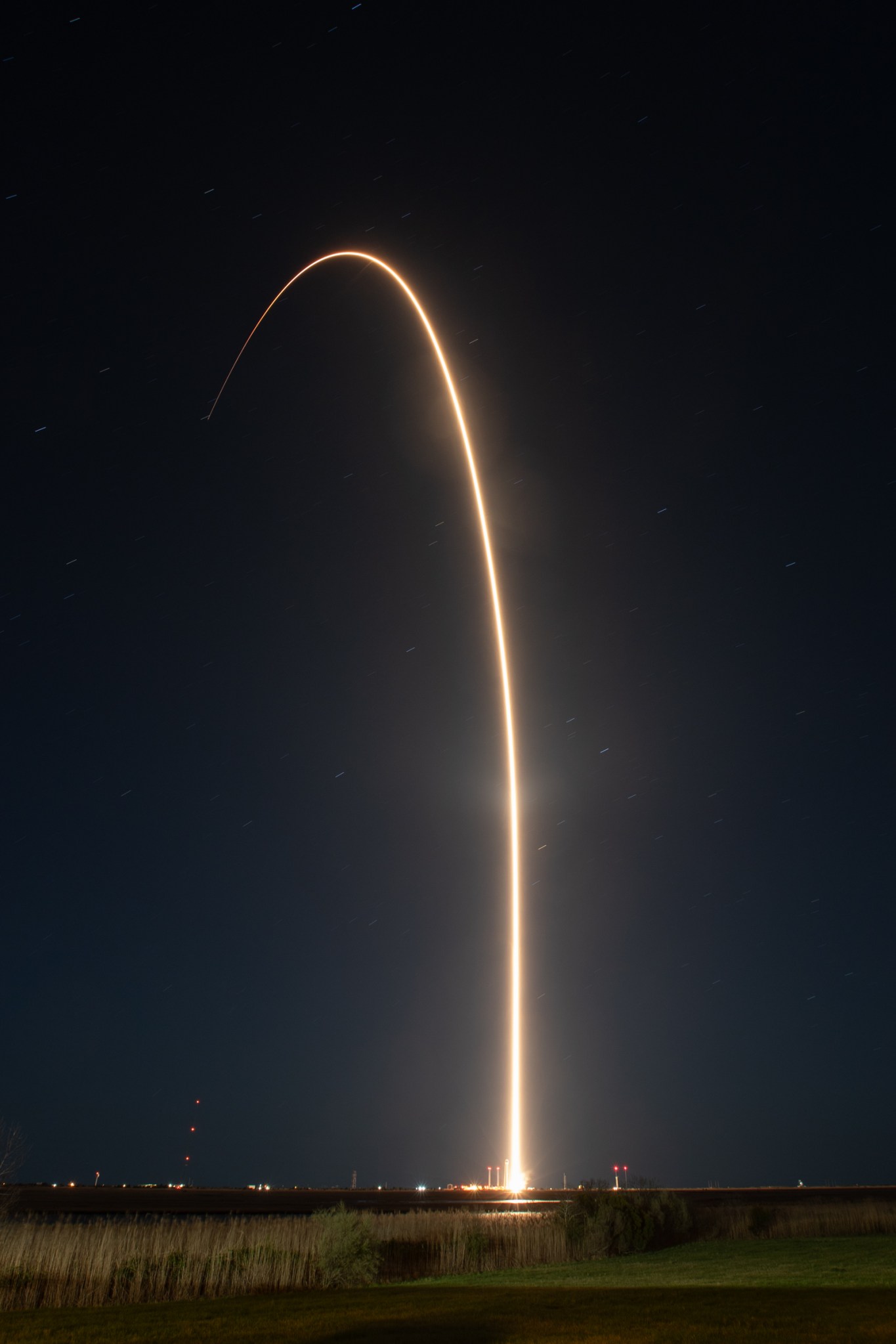2 min read
NASA's Wallops Flight Facility supported the successful launch of a Rocket Lab Electron rocket at 3:25 a.m. EDT, Thursday, March 21, from Virginia's Mid-Atlantic Regional Spaceport on Wallops Island, Virginia.
The rocket carried three collaborative research missions for the National Reconnaissance Office (NRO). The mission, dubbed NROL-123, was the first NRO mission to fly on a Rocket Lab rocket launched from the United States.

"We are proud to support our commercial and government launch partners with world-class launch range, safety and support services," said David L. Pierce, Wallops Flight Facility director. "It was a picture perfect launch following a smooth countdown."
This was the third Electron launch from Wallops and the fourth launch from Rocket Lab's Launch Complex-2 in Virginia.
The next launch from Wallops is scheduled April 8, 2024, during the solar eclipse. The Atmospheric Perturbations around Eclipse Path (APEP) mission will launch three sounding rockets before, during, and after peak eclipse time to study how the sudden drop in sunlight affects the Earth's upper atmosphere.
NASA's Wallops Flight Facility provides agile, low-cost flight and launch range services to meet government and commercial sector needs for accessing flight regimes worldwide from the Earth's surface to the Moon and beyond. Wallops' flight assets - ranging from research aircraft, unmanned aerial systems, and high-altitude balloons to suborbital and orbital rockets - provide a dynamic range of flight capabilities. In addition, operational launch range and airfield assets at the facility enable science, aerospace, defense, and industry sectors.






